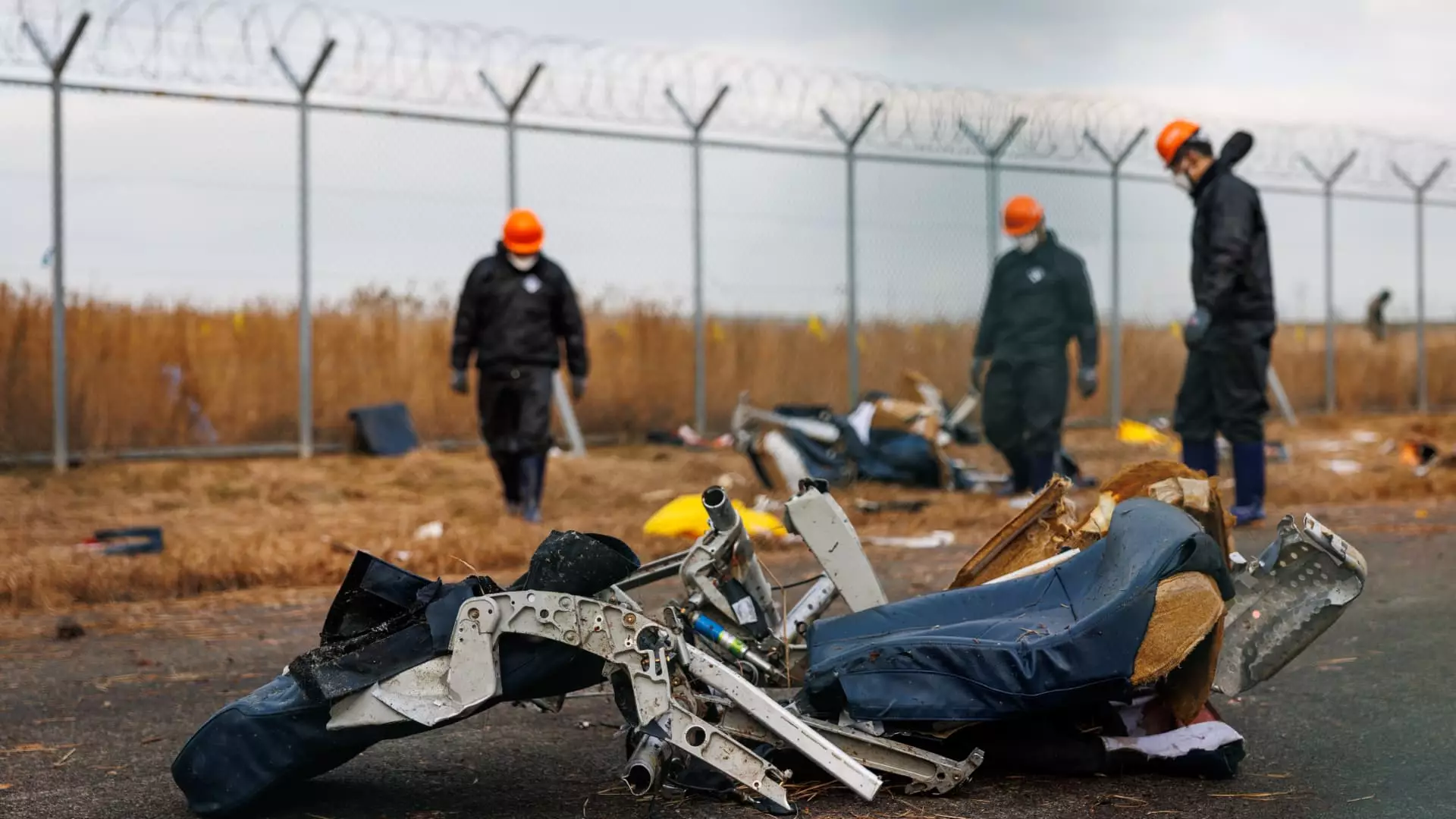The aviation industry experienced a significant shock following a fatal accident involving a Jeju Air flight on Sunday, which resulted in the tragic loss of 179 lives. As events unfolded, South Korea’s government initiated critical measures aimed at investigating the safety of the Boeing 737-800 aircraft model involved in the incident. The crash, which occurred at Muan International Airport when the airplane landed without properly deployed landing gear, has put Boeing’s reputation and financial standing in jeopardy, highlighted by a nearly 5% drop in shares during premarket trading.
In light of the tragedy, Acting President Choi Sang-mok ordered an emergency inspection of all B737-800s in South Korea. This decisive action underscores the urgency of thoroughly evaluating the safety protocols surrounding these aircraft models. The Ministry of Land, Infrastructure, and Transport (MOLIT) announced plans for a “comprehensive special inspection” focusing on the B737-800, with additional emphasis on adherence to federal safety regulations and operational protocols. This includes an examination of operational records and maintenance checks conducted before and after flights. Such investigations are imperative to identify potential systemic failures that may contribute to such catastrophic events.
The circumstances surrounding the crash remain unclear, but preliminary information indicates that the pilot reported a “bird strike” shortly after the control tower warned of bird activity near the airport. This detail raises critical questions about the preparedness and infrastructure available to address wildlife hazards at and around airport facilities, as well as the emergency procedures in place for pilots facing unexpected technical issues. Two black boxes retrieved from the wreckage are now under analysis, and the U.S. National Transportation Safety Board is collaborating with South Korean authorities to conduct a thorough investigation. This collaboration underscores the international nature of aviation safety and the shared responsibility among global regulatory bodies to foster safe flight operations.
As news of the crash and ensuing government inspections spread, Boeing’s stock dipped significantly, reflecting investor anxiety regarding the potential implications of the crash on the company’s reputation and market viability. The B737-800 is widely used among low-cost carriers in South Korea, with Jeju Air operating the largest fleet. The decline in Boeing’s stock prices reveals the pervasive impact of safety incidents on investor confidence; the broader implications could affect their future contracts and the trustworthiness of their entire aircraft assembly, including the more advanced B737-Max series that has already seen scrutiny in the past.
The incident has also prompted Jeju Air, along with other South Korean airlines operating the B737-800, to reassess their safety protocols. Reports of a separate incident wherein another Jeju aircraft returned shortly after takeoff due to landing gear issues raise alarms about potential systemic concerns that demand immediate addressing to prevent future tragedies. Jeju Air has vowed to support the victims’ families, but the airline’s shares fell sharply in response, indicative of investor dissatisfaction with how the incident has been handled.
The tragic crash of the Jeju Air flight presents a sobering reminder of the inherent risks associated with aviation. This incident has catalyzed a reevaluation of existing safety standards and operational procedures within the industry, particularly concerning the Boeing 737-800 model. As investigations proceed and the aviation community seeks answers, it is crucial for all stakeholders, including manufacturers, regulators, and airlines, to enhance their commitment to safety. Such incidents call for a renewed focus on operational integrity and may spark changes in regulatory frameworks to ensure the aviation sector remains impervious to preventable errors and tragedies in the future.


Leave a Reply